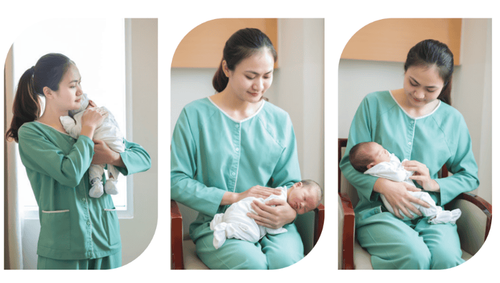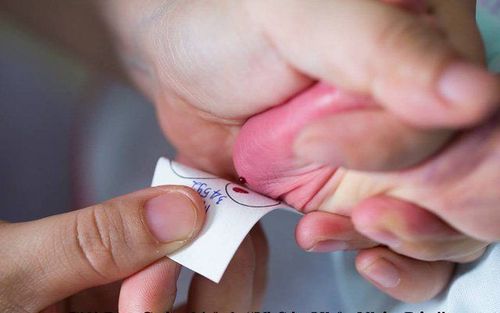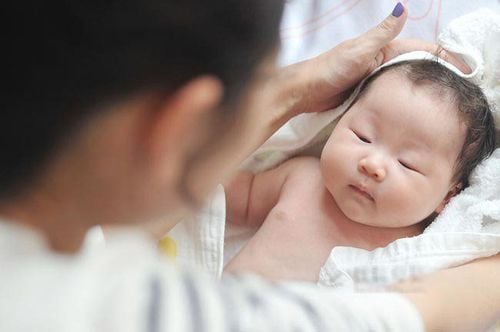This is an automatically translated article.
Newborn screening test performed through heel blood collection is a method that does not affect the health of the baby. The purpose is to detect congenital diseases, thereby taking timely intervention measures, combating the development of the disease, reducing the burden on the family, and ensuring the normal development of the child.
For newborn screening tests, in principle, blood from any part of the baby's body can be done. However, usually, doctors will take blood from the heel because this is the part with an abundant amount of blood, enough to meet the test. In addition, the heel is a less sensitive part of the baby's body than other parts of the baby's body, so there will be less pain when taking blood. In the case of premature or underweight babies, they should be taken away. Heel blood collection before the 20th day after birth. Children who need a blood transfusion after birth are taken after 3 months. The blood taken will be blotted on special dry blotting paper and brought for testing.
Process of taking heel blood for newborn screening, helping to detect 58 congenital diseases in children: G6PD enzyme deficiency, Congenital adrenal hyperplasia, Congenital hypothyroidism ... including:
First, the The doctor will explain to the parents of the baby about the benefits of taking the baby's heel blood for testing and ask for the baby's and family's personal information to fill out the test sheet: Mother's name, baby's gender, weight , date of birth, mother's medical history, date of sampling ... Perform heel blood collection: The baby's body will be placed with his feet lower than himself to take blood from the heel. The number of blood drops to be taken is 2 drops of blood and is placed on 2 circles of absorbent paper to dry. Preservation of blood samples: Will be allowed to dry naturally and sent to the laboratory. This newborn screening test will be performed to detect at least 2 diseases, namely G6PD deficiency and congenital hypothyroidism, with a maximum of 58 congenital pathologies in the baby. Time to return test results: Within 24-48 hours. Cases of suspected illness will be notified to the family for the next course of action. The most appropriate age for newborn screening is between 2 and 7 days old. However, the timing of the heel test depends on whether your baby is born full term or not. After taking the test, the results will be returned within 24-72 hours. If newborn screening results show that your baby has the disease, your doctor will advise you on the condition and guide you on next steps for diagnosis, treatment, or prevention.
In fact, there are many diseases that cannot be seen with the naked eye, so in order for a child to develop normally, it is necessary to have more information about the child's health status in order to timely detect diseases and take blood. heel is essential.
Please dial HOTLINE for more information or register for an appointment HERE. Download MyVinmec app to make appointments faster and to manage your bookings easily.













